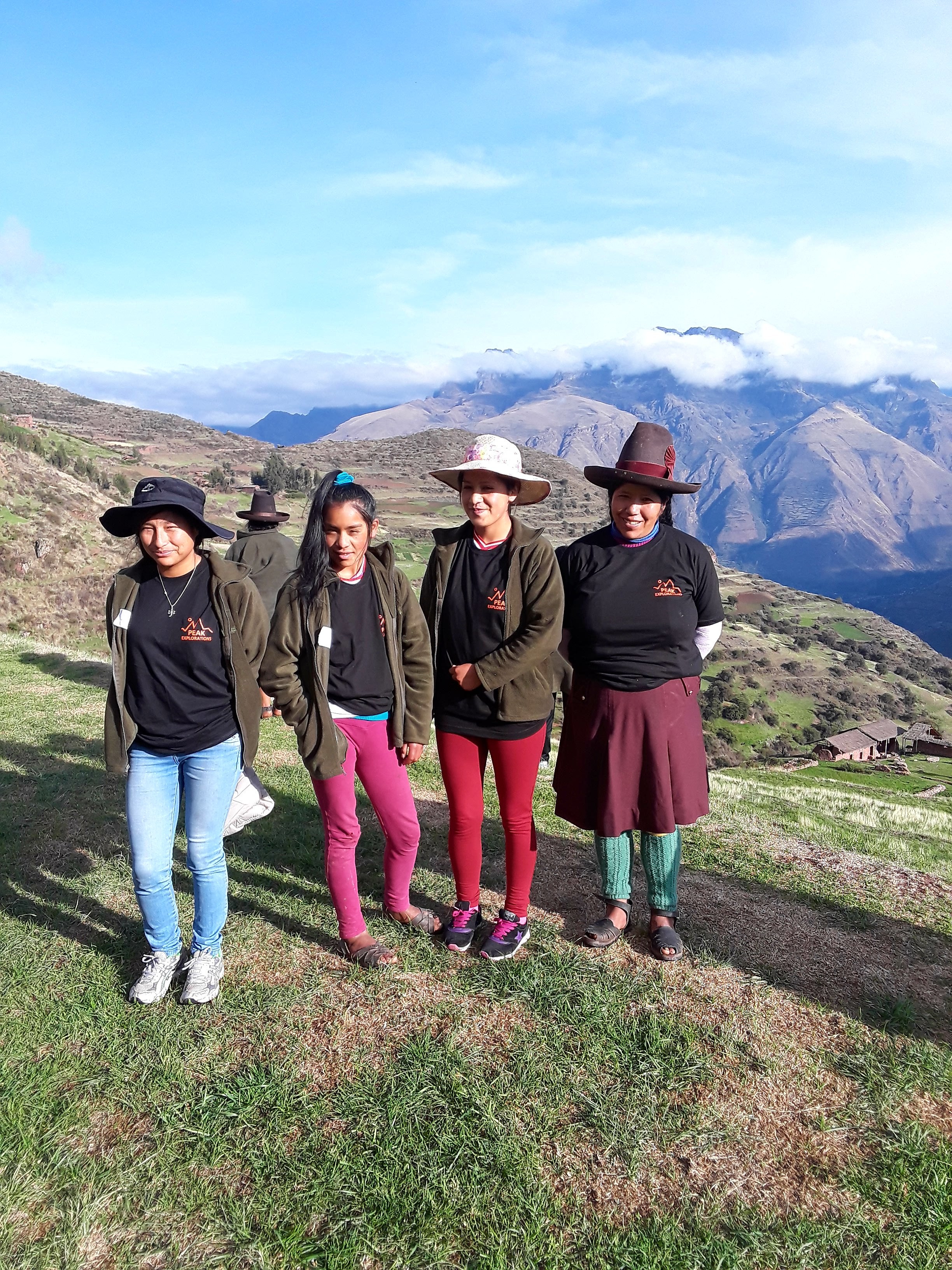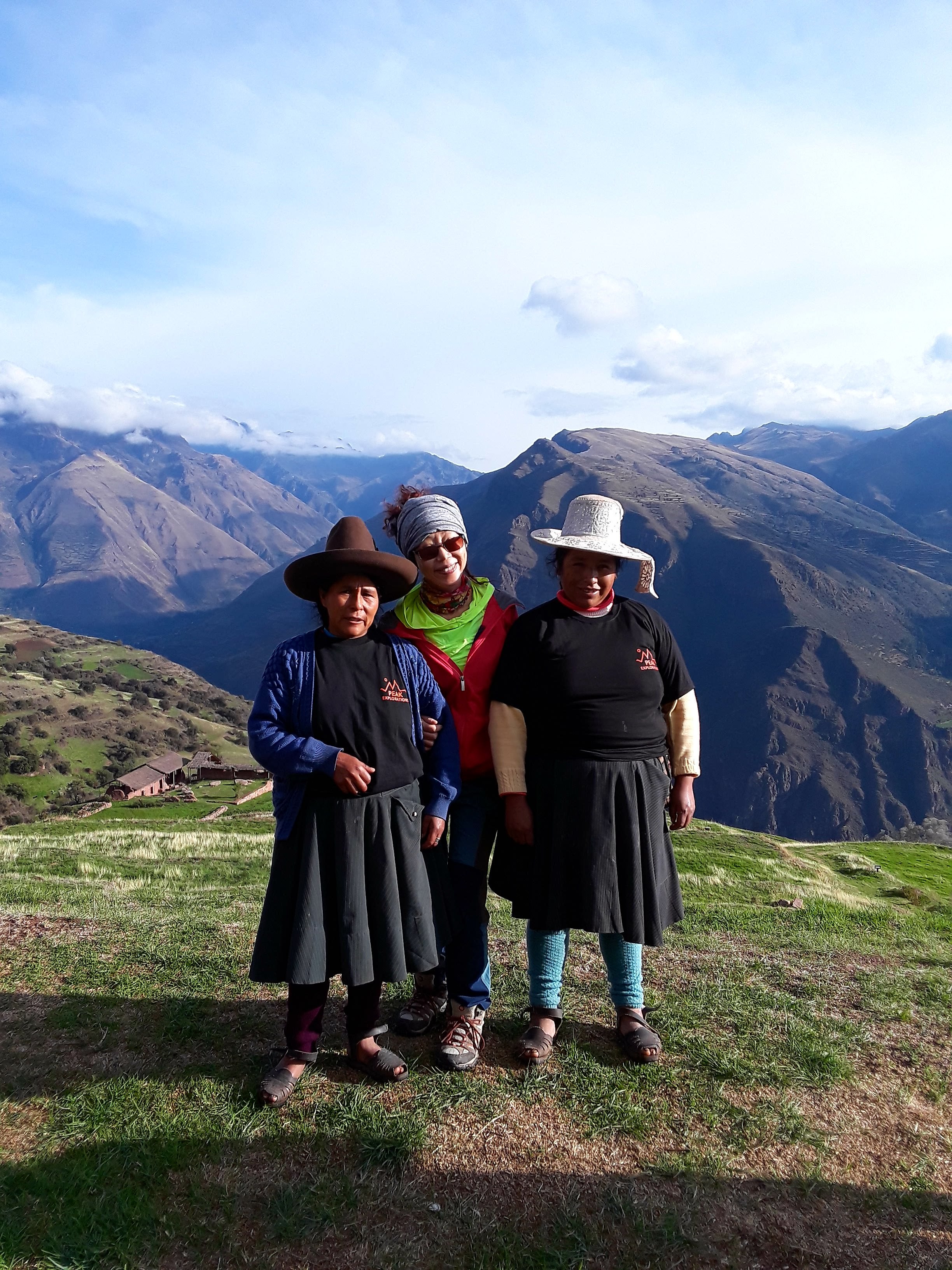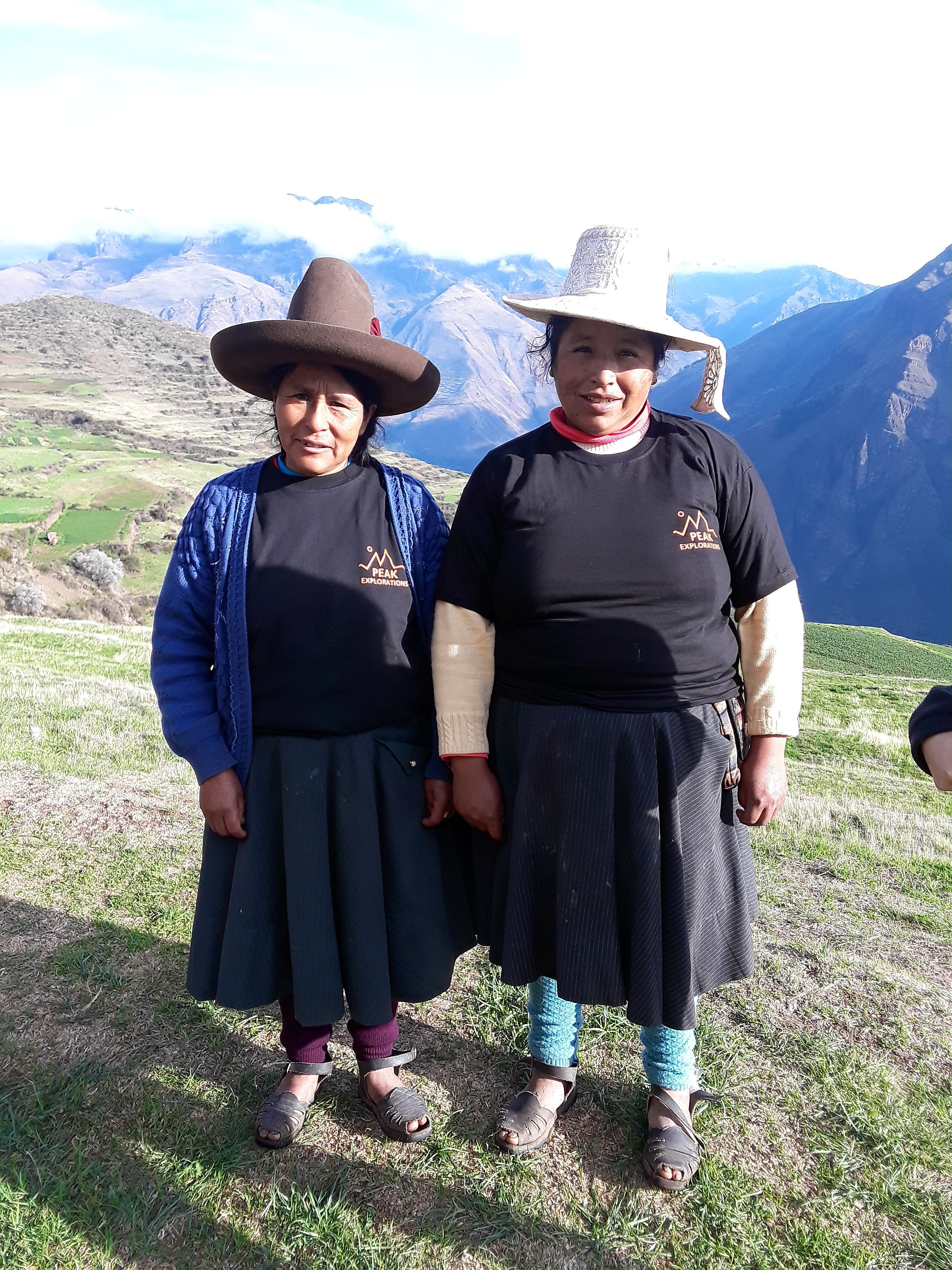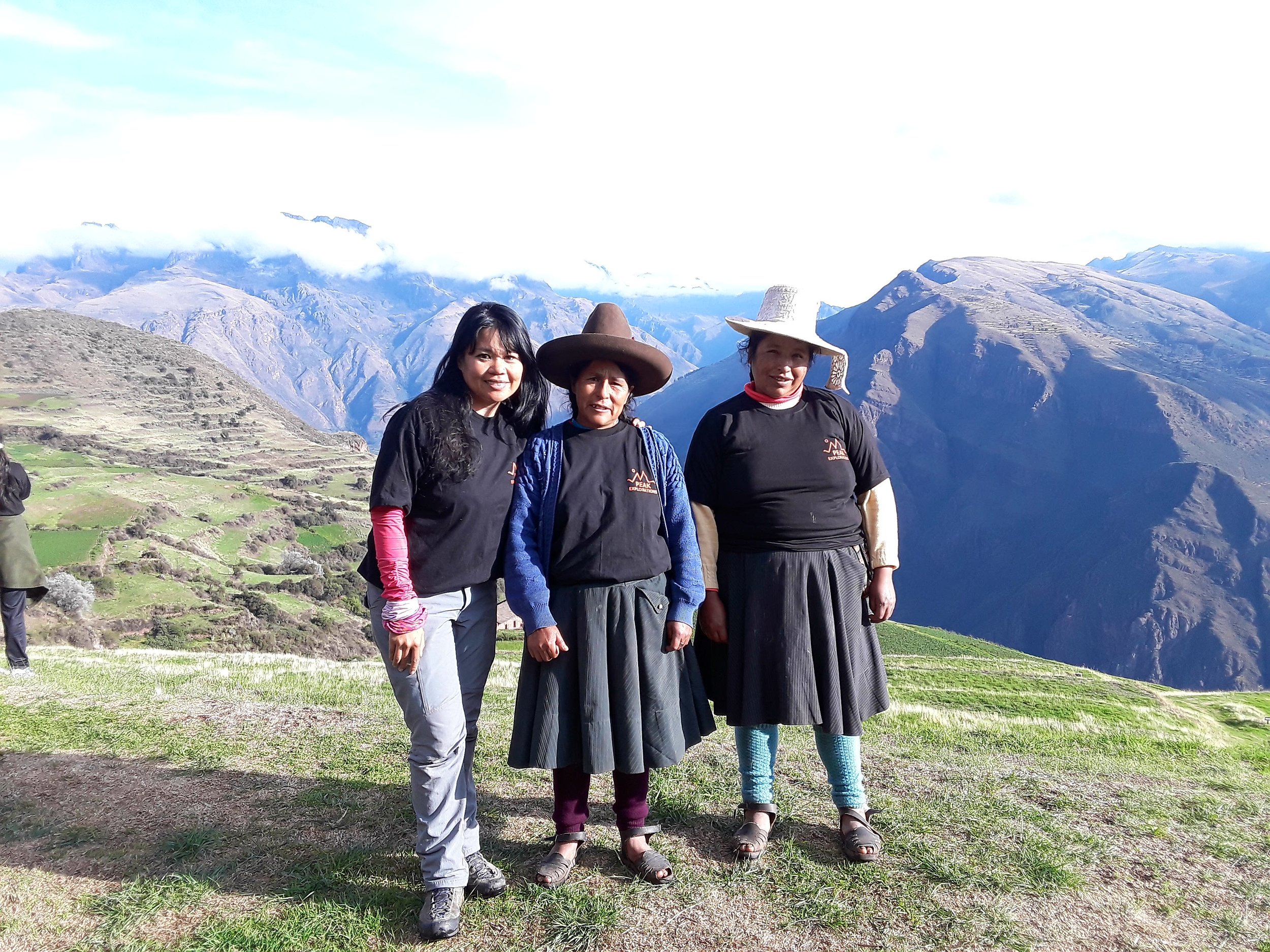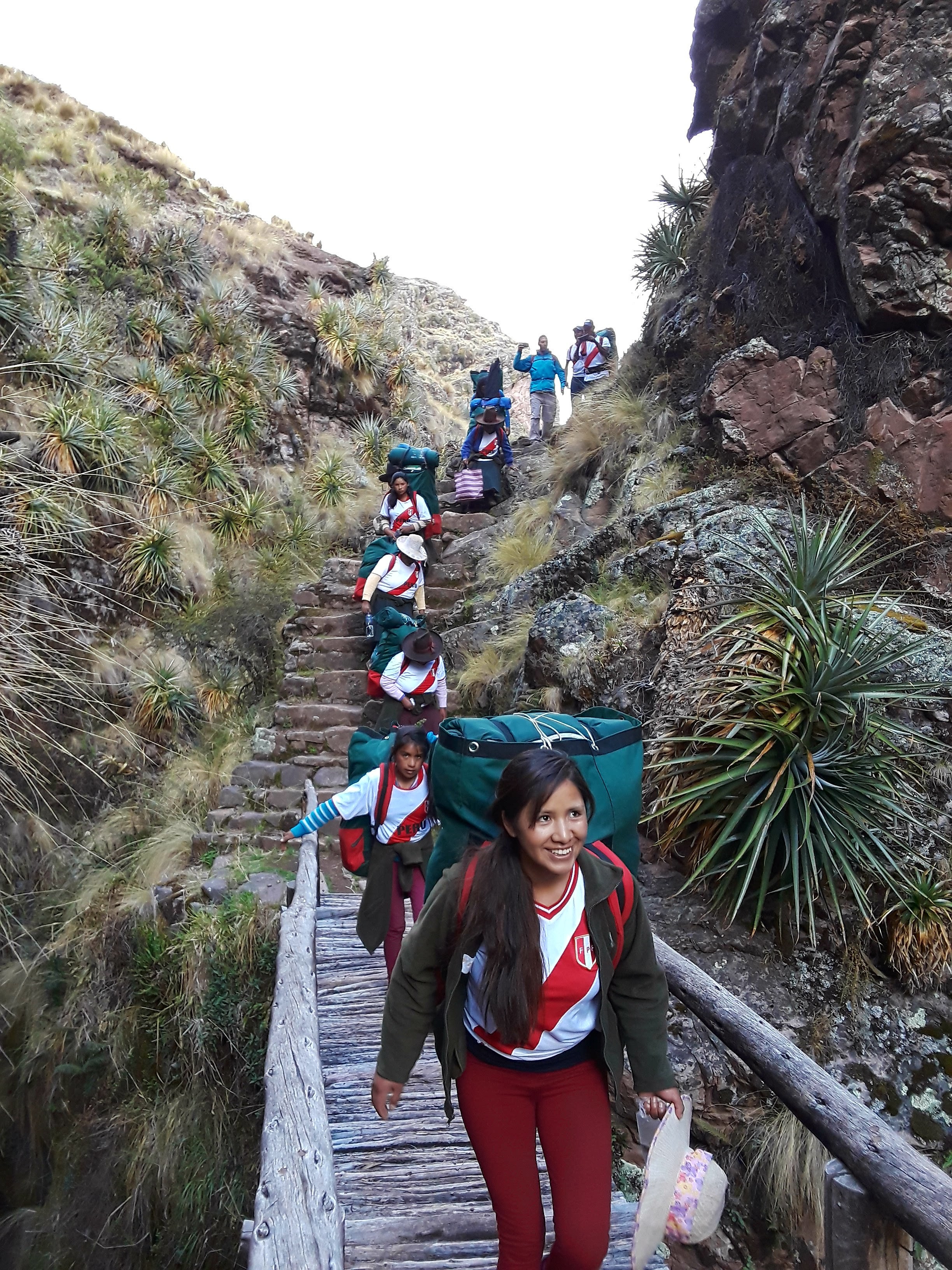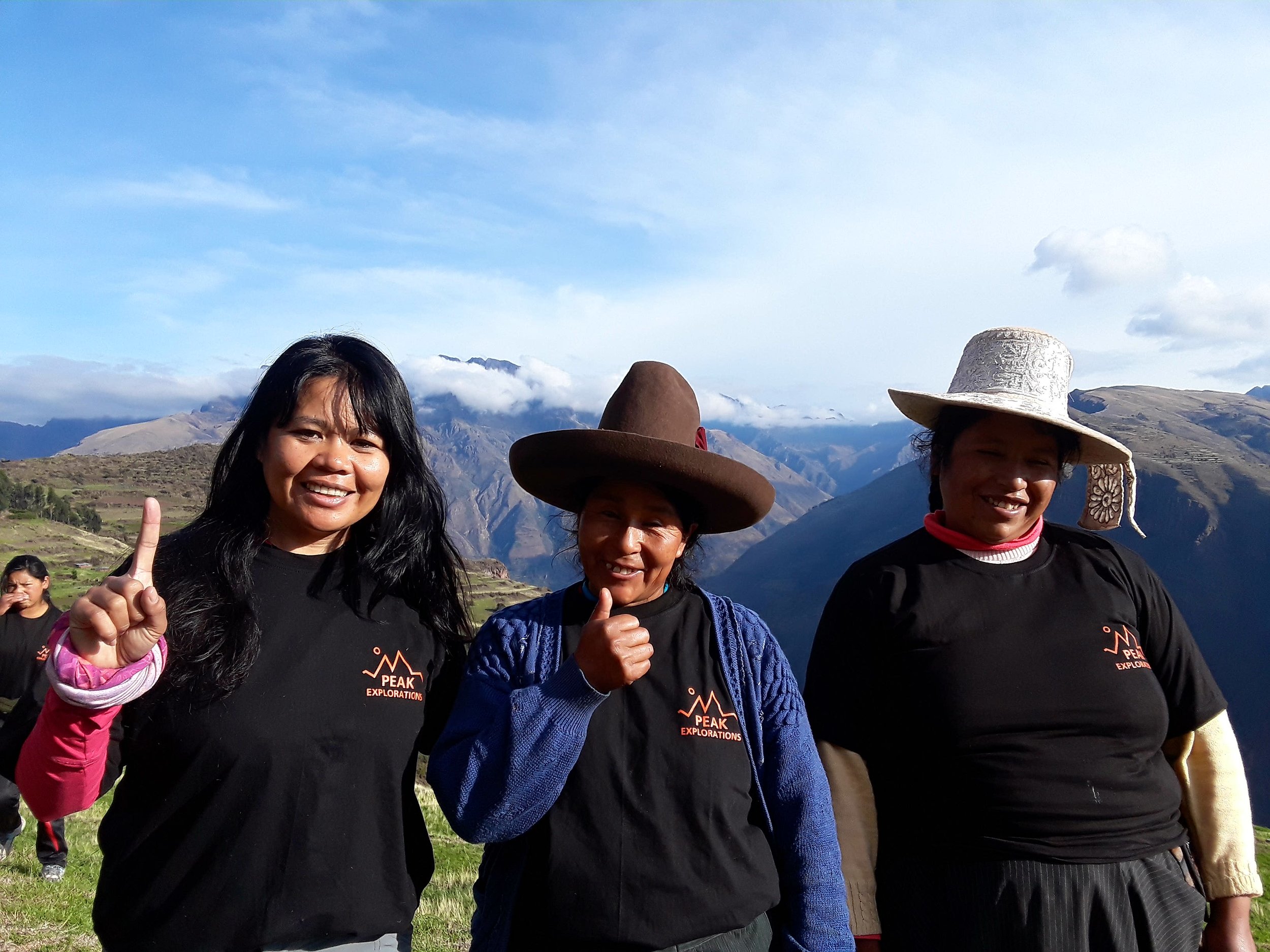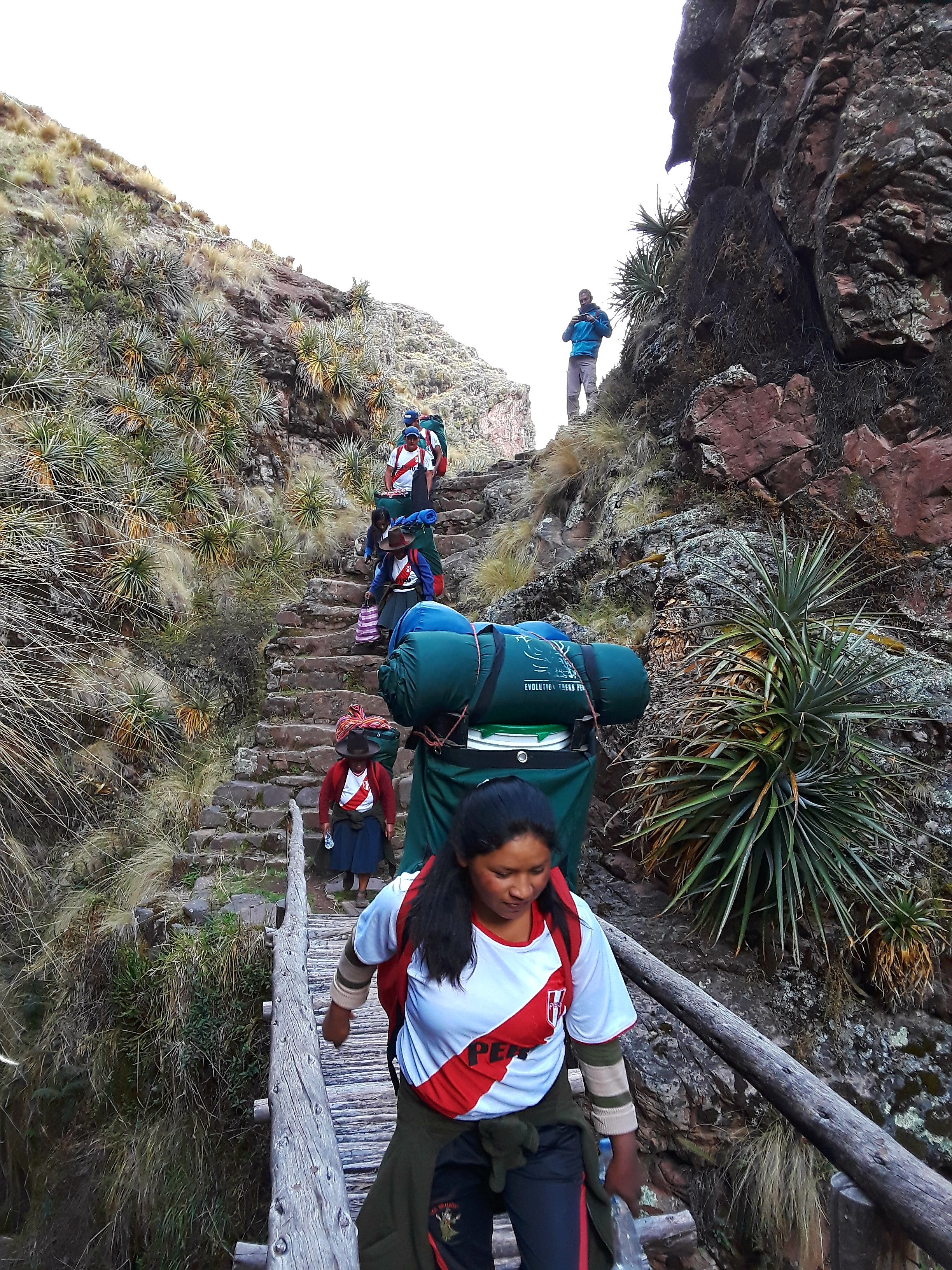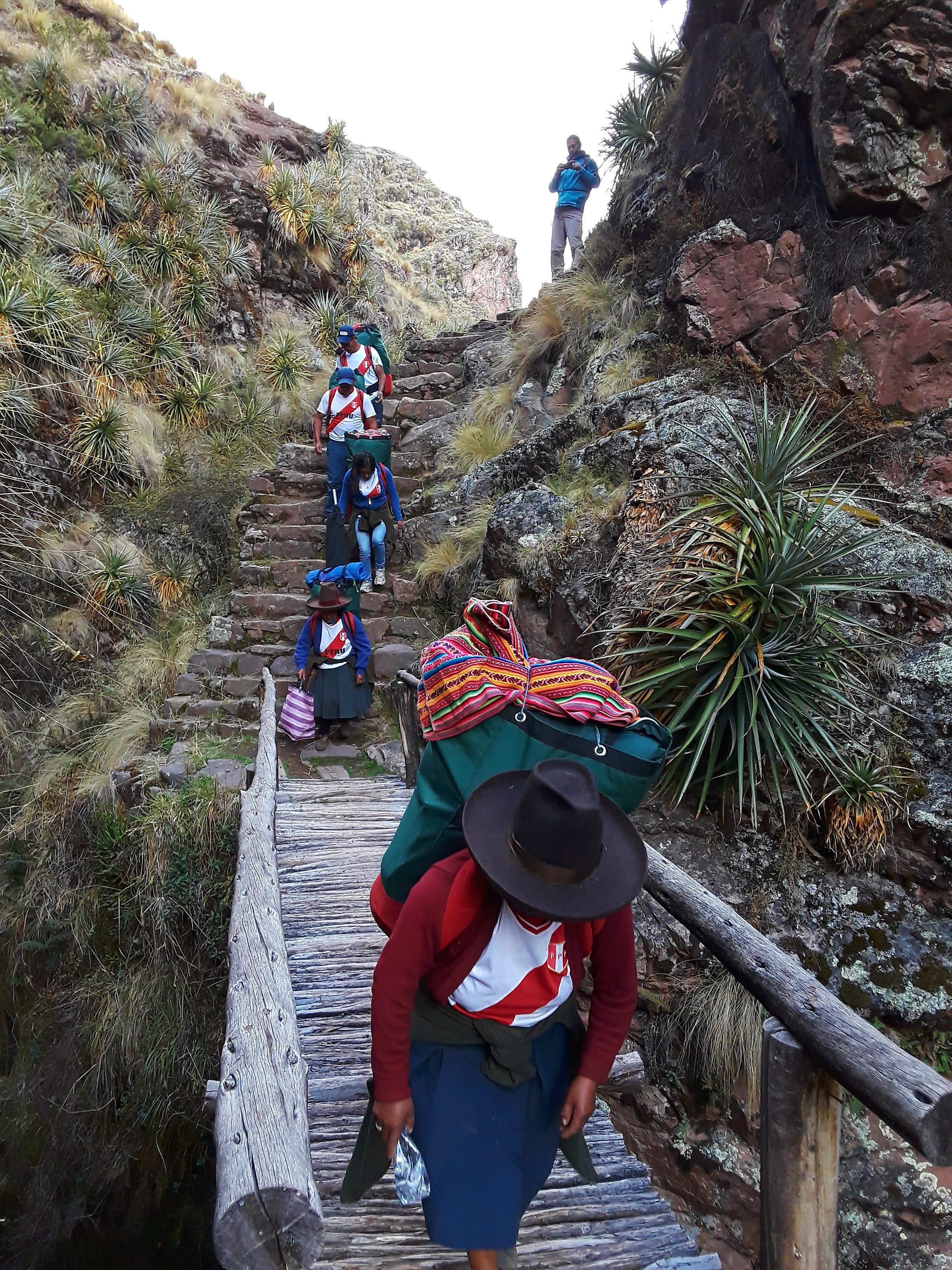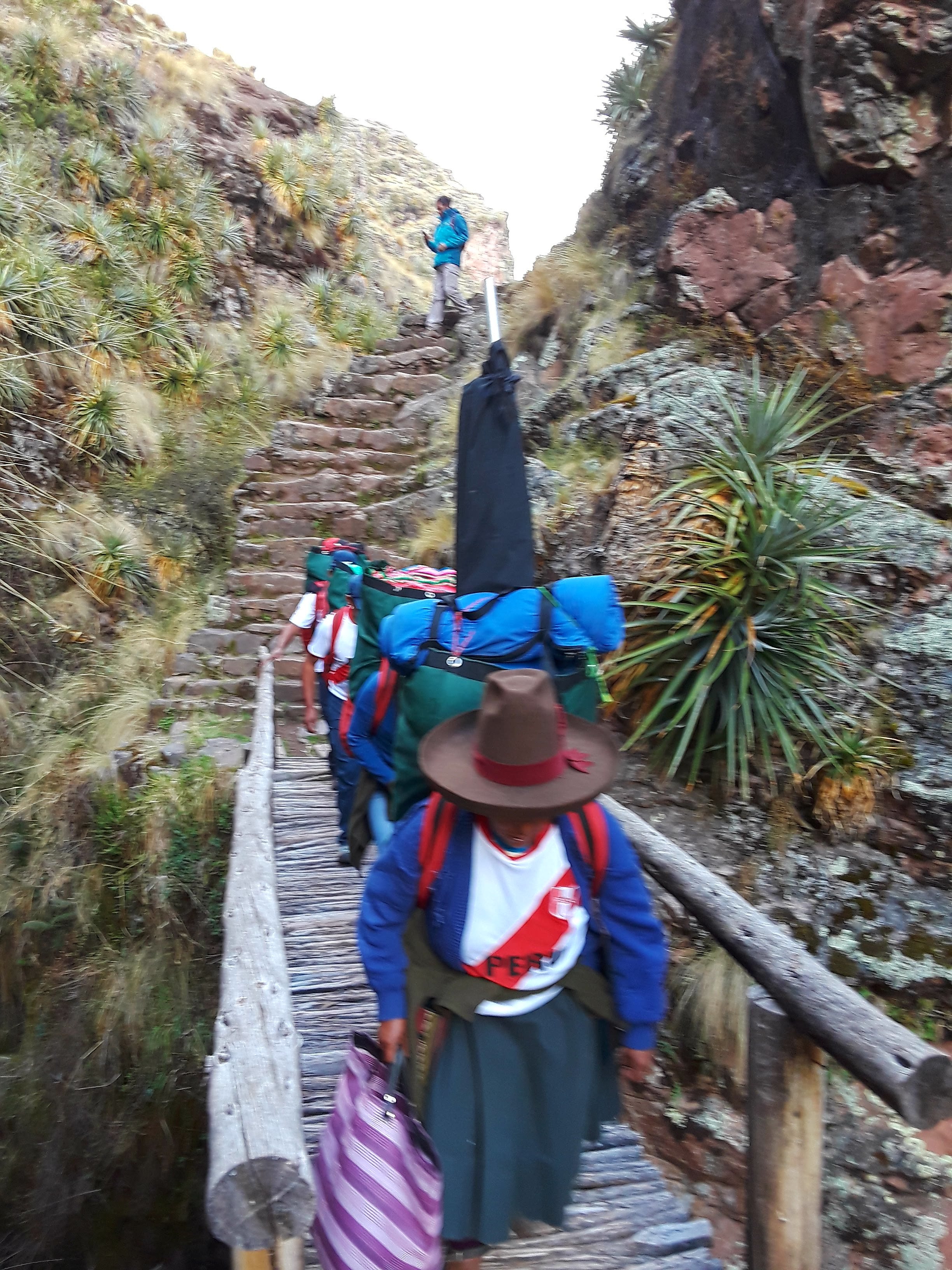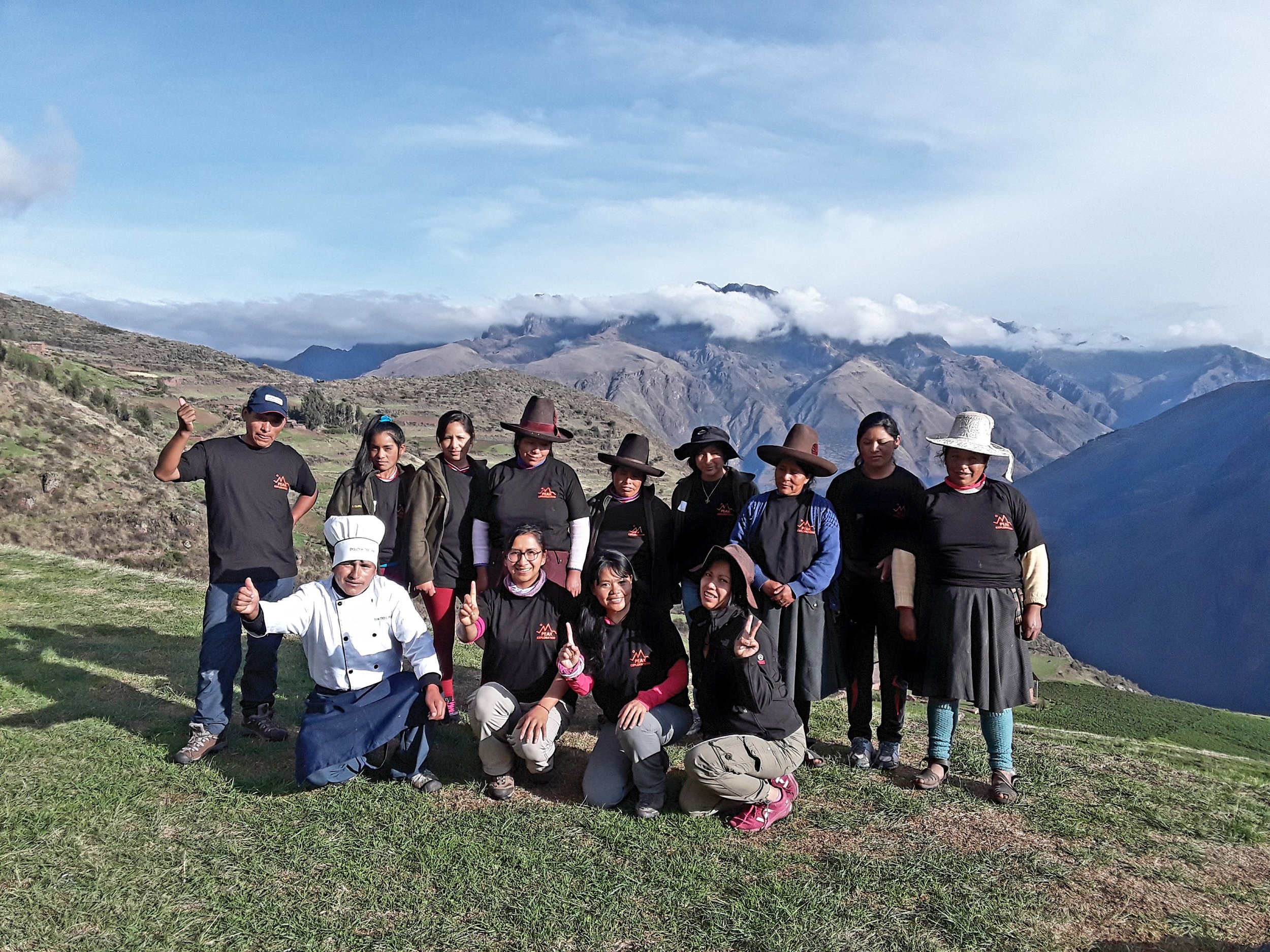PERU'S QUECHUA WOMEN: Invisible No More
Invisibility can only last for far too long before someone steps outside the box to observe or to be seen.
I've been a global mountain trekker and a traveler for over 15 years. Trust me when I say I have looked away plenty of times and ignored certain aspects of mountain trekking that my subconscious mind rather finds questionable and disturbing. But time has its way to make you finally ask the right questions including this one -
Is there a place for women in the trekking tourism industry?
I'm not talking about the hikers or travelers who book trips to hike up peaks and summits. I'm talking about the women in these mountain regions where trekking is a major source of income for the men (mostly) as they assume the roles of guides and porters. Despite a late recognition and acknowledgment of this fact, I know I've been aware of this all along even if it was under the guise of not wanting to "rock the boat" within the trekking tourism industry, so to speak. But, one day, I woke up and realized, how can I be so immune to this issue when as a Philippine born American I have experienced the same sense of "invisibility" that these women continue to endure?
Invisibility is silent.
It's passive.
It appears to be harmless and yet it creates divisions to place certain groups under a constant struggle.
That's why it is easy to overlook. Unless you step out of that familiar darkness, you will never be seen. Will you wait for someone else to find you or will you take the initiative to finally be seen? There are choices to be made.
In my case, I made the latter the decision for most of my life. In practicing law as a prosecutor, if you wish to be heard, you should not only speak up, but you must also speak with the right volume. Being loud isn't the requirement necessarily. It's rather about being compelling in your mode of speaking combined with the substance of your statement. For 15 years, I learned to effectively execute that volume, but when it comes to the trekking tourism industry as a whole, I continue to ponder - where does my voice and the rest of the voices of women belong?
In 2016, when I launched Peak Explorations, I had no idea where I belonged in the industry. Neither did I know what to make of women in general in terms of the mountain trails. And even more so, I was perplexed at the lack of women in the roles of guides and porters in the trekking tourism industry. Now, you may think and respond secretly - "It's common sense. Women aren't as capable as men to work as guides and porters when it comes to climbing up a peak such as Kilimanjaro or trekking the remote trails of Mongolia's Altai or the Indian Himalayas or the Andes trails of Peru."
Well, I disagree. Women are very much capable as porters and guides. Let me give you examples.
One trek guide we have in Mongolia through our social enterprise happens to be a female and she has been working in the region for 5 years taking experienced hikers, both men and women, up and down the Altai mountains over a period of a week or two and more.
Then there's Enjoylight who I interviewed via my Women Trail Leaders podcast who has been working as a porter for 5 years but somehow cannot break that glass ceiling to advance in the industry as an actual Kilimanjaro guide. You can hear directly from her about her struggles here and as to what our enterprise plans to do to break the glass ceiling.
Then there is the inspirational story of a woman in Ladakh, India who faced obstacles when she started out as a guide whereby her qualifications were constantly questioned and viewed lesser than those of her male counterparts. Hence, she made the same choice I did - she took it upon herself to break the boundaries of invisibility and made herself be seen and heard at the right volume. And, she's taking other Ladakhi women with her on her journey to break the boundaries of invisibility through becoming a founder of an adventure travel company in Leh, India -the first company to employ women only for the roles of guides and porters. Be inspired and read her story here.
Here's the thing:
Women are capable.
But, unfortunately, they have been invisible all this time when it comes to jobs entailing mountain trekking. After all, how often do you envision a female as a mountain trekking guide? Or as a porter? Be honest. Hardly. And that's understandable.
Men have dominated the trekking tourism industry. I don't dispute that. My trek operators from over a dozen countries have all been under the leadership of men except for one. But given that women are as capable as men, don't you think it's time to let women play the same roles, as well? To be frank, women should get to enjoy a piece of the pie too. After all, there is money to be had in the trekking tourism industry and some of these women can benefit tremendously especially those who have children to support; thereby increasing the family income as combined with their partner's salary as a whole. Farming and menial labor, in general, yield a much lesser level of income whereas guides and porters can receive a relatively higher salary in a shorter period of time. Hence, providing opportunities for women to work in the industry is a win-win situation from an economic standpoint.
But I also wish to add, not only is this about financial benefit. It's also about advancement. In remote parts of the world, patriarchy is a factor that prevents women from advancing.
It's also about gaining self-sufficiency and independence - both of which can be critical in certain communities where domestic violence is prevalent.
This takes me now to discussing the Quechua women in the Cusco region of Peru. Most of the women in Peru experience domestic violence at some point in their lives (a fact commonly shared by women from various countries, really). But the occurrence is more common when we're talking about indigenous women where oftentimes the women succumb to their circumstances due to various reasons which may include financial. After all, when you're a woman with a child and your partner is providing most, if not all, of the financial support, knowing what to do in the situation isn't easy. It's even harder when culturally you're expected to stay with your partner and maintain the family as one unit, and leaving otherwise leads to being stigmatized by your own family and community. The challenges are rather daunting. And yet, these challenges have been hidden and tucked away under the guise of invisibility. With the weight of the world upon these women, can you really blame them if it has taken so long for them to step out to be seen?
Personally, I can't. So, as an outsider to this predicament, I realized that as the founder of a social enterprise, and as a woman, it is no longer acceptable to keep my attention away from the issue at hand. Women as noted above should and do have a place on the mountain trails.
And so, with the lead taken by our local partners in Peru, a number of Quechua women have now stepped out of the invisibility to assume roles as trail leaders in such a male-dominated trekking tourism industry. Frankly, it took time, effort and trust for the women to step out of the comfort of invisibility to be seen; nevertheless, these women made their own choice to be seen. Now, they're inspiring their fellow women in the communities to do the same. On our Huchuy-Qosqo to Machu Picchu trek, eight of them from various age groups and life circumstances proudly stood before us in their novel roles as porters - a role that everyone of us should admire given that it entails mental and physical strength on the mountain trails.
It was a proud moment for them. Our guide, Shandi, who is an inspiration herself for being one of the very few female guides in the Cusco region, stood proudly alongside these women.
It was the first time in the history of Peru that indigenous women assumed the roles of porters on the mountain trails of the Andes.
It was historic.
And, it was a big deal.
But most importantly, it was just the beginning of what's to come - the full inclusion and visibility of women porters and guides on the mountain trails worldwide.


